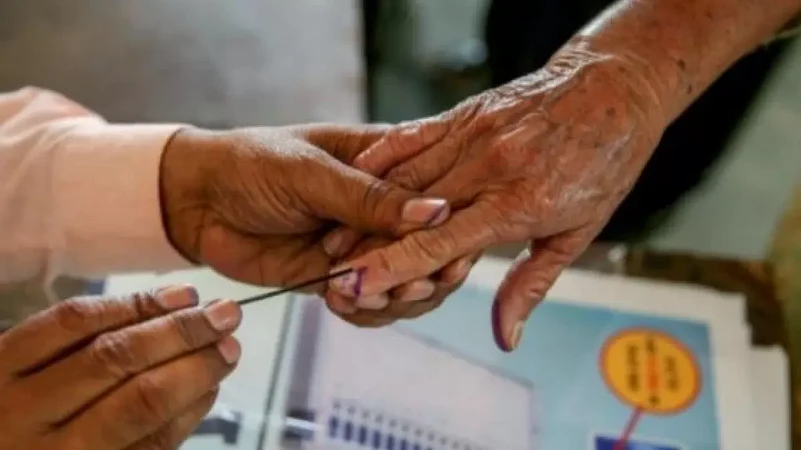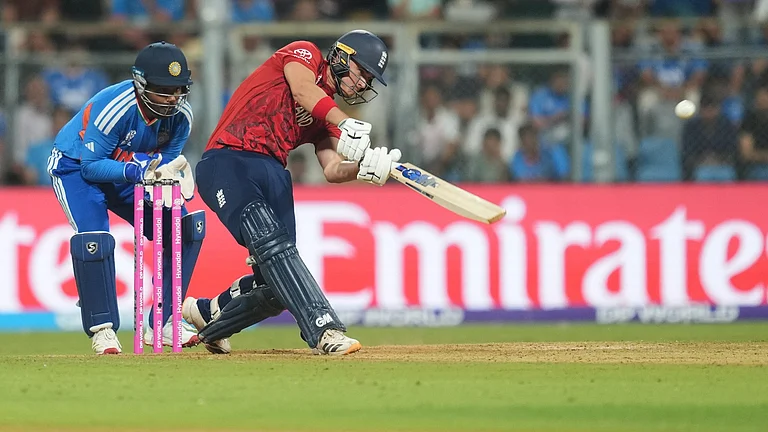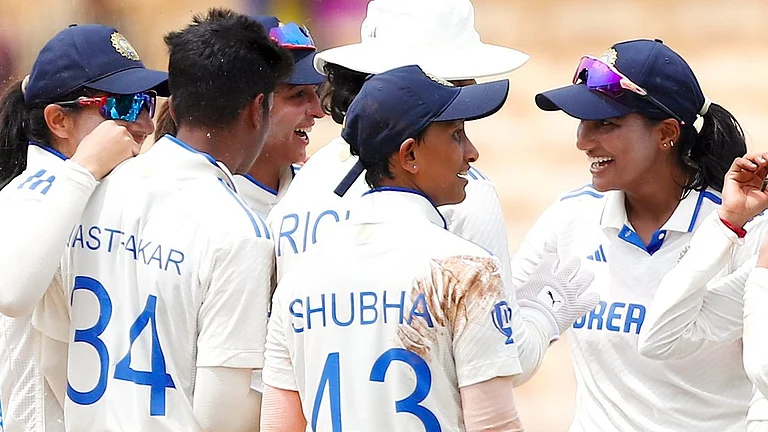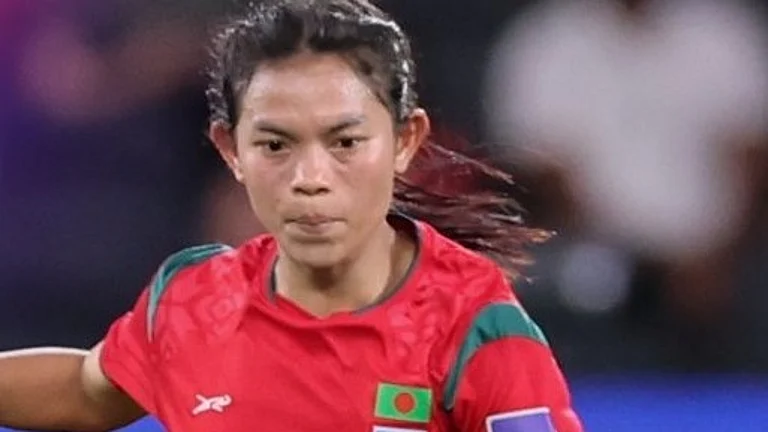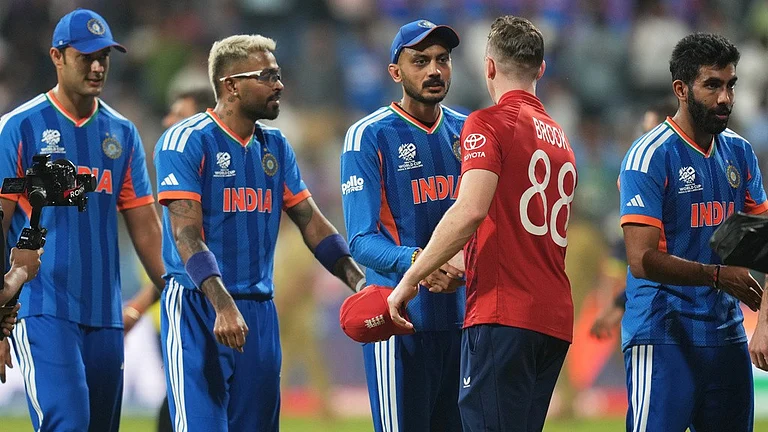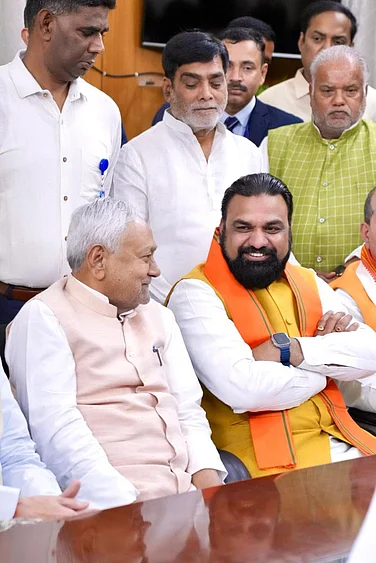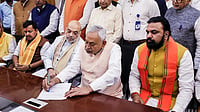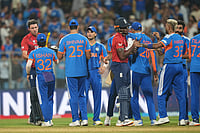On Thursday, as the vote count kicks off in Gujarat, the Bharatiya Janata Party (BJP), which has held the reins of power since 1995, is eyeing to seize the seventh consecutive win in the recently held assembly polls. Gujarat is a key state for the BJP for several reasons, one being that PM Narendra Modi, son of the soil, consolidated himself from the turf and rose to power in 2014. Being the bastion of the BJP, the state comprises 26 Lok Sabha seats, all of which were clinched by the party in the 2019 general elections. However, this time the assembly elections are interesting as the turf will witness an interesting electoral churn as the traditional bipolar contest between Congress and the BJP has come to an end with Aam Aadmi Party (AAP) thoroughly going into the fray in all the 182 constituencies.
Speculations of brewing anti-incumbency against the ruling BJP have been rife throughout. However, political observers believe that this time the voting pattern is difficult to gauge because there was an eerie silence among the voters. Talking to Outlook, a source quips that it was surprising to see that not as many people showed up during Modi’s campaigning rally as one would ideally expect. “It was not as massive, we could see many empty chairs in the back, which is unusual,” he tells.
Rahul Gandhi did not spend a lot of time campaigning in the state as he is occupied with a historic padayatra aimed at rebranding his image and rejuvenating his party cadres. Although exit polls have thoroughly banished Congress to a wide-margin defeat sources in Congress tell Outlook that their chances are not as bleak. However, AAPs inroads and dozens of Muslim independents will definitely dent the Muslim vote bank that traditionally has been favouring the grand old party, that in turn will, as political observers believe, benefit the BJP by leaps and bounds.
Voting in Gujarat
The first phase of voting for 89 seats in Saurashtra, Kutch and south Gujarat regions was held on December 1, when an average voter turnout of 63.31 per cent was recorded.
In the second phase, voting was held in the remaining 93 seats, for which 833 candidates were in the fray from 61 political parties, including the BJP, Congress and the new poll entrant Aam Aadmi Party (AAP). The nominees also include 285 independents, as per the state election body. A moderate voter turnout of 60.94 per cent was recorded in the second and final phase.
Gujarat Chief Electoral Officer (CEO) P Bharathi said barring a few incidents of violence, polling for the final phase went off peacefully.
Around 5,000 voters abstained from voting at six polling booths in three villages of Mehsana district over local issues.
Among districts, Sabarkantha recorded the highest turnout at 68.33 per cent, followed by Banaskantha at 65.65 cents, showed the provisional figures released by the Election Commission.
Voting was lower than the average in Mahisagar at 54.26 per cent and in Ahmedabad district at 55.21 per cent. Another urban district Vadodara recorded 63.91 per cent voting, the poll panel figures showed.
Clashes broke out between different groups in Fatepura seat of Dahod district and Kalol of Gandhinagar district, EC officials said.
Muslim votes in Gujarat
The 2022 Gujarat elections saw many independent Muslim candidates contesting the polls. But this has put Congress at a stage of a disadvantage as they fear that the candidates will cause a dent in their vote bank.
The Indian National Congress has given tickets to only six candidates from the community, which is around 3.3 per cent of all seats, while Muslims constitute around 10 per cent of the state’s population. The Aam Aadmi Party (AAP), which is contesting its first election in Gujarat, has fielded three candidates, and the All India Majlis-e-Ittehadul Muslimeen (AIMIM) has 13 contestants in the fray to consolidate its presence after winning 17 seats in three municipalities in last year’s local body elections.
Obviously, there is a dearth of Muslim candidates in the mainstream parties. In several Muslim-majority constituencies, voters are in a catch-22 situation, as they have to elect several independent Muslim candidates, apart from candidates of mainstream parties. Take, for instance, the Limbayat constituency of Surat, where 44 candidates are in the fray, of which 36 are Muslims. No mainstream party has fielded any Muslim candidate for this seat.
The BJP is not fielding Muslim candidates because “the party believes that Muslim candidates are unlikely to bring in votes of their community. This may also alienate the party’s Hindu base,” as reported by Outlook.
Exit Polls
The ruling BJP in Gujarat is aiming for a straight seventh term in the state, with hours left for counting of votes for Assembly elections held on December 1 and 5.
Exit polls have predicted a big majority for the BJP in Gujarat and if these projections are any indication, the saffron party is all set to retain power in the state for the seventh consecutive term and equal Left Front’s feat in West Bengal.
For the BJP, a positive result will firm up Narendra Modi’s bid for a third consecutive term as PM in 2024.
For the Congress, its role as the main challenger to the BJP is at stake and Thursday’s results will reveal if the party’s ‘silent campaign’ has cut ice with people, an observer said. The top leaders of the party were busy with the Bharat Jodo Yatra.
For AAP, which carried out an aggressive campaign, the Gujarat election is a chance to establish itself as a pan-national party and a challenger to BJP at the national level also.
It was a high-stakes three-cornered fight between the BJP, Congress and AAP. Political observers said the outcome will determine who captures the main opposition space in Gujarat.


